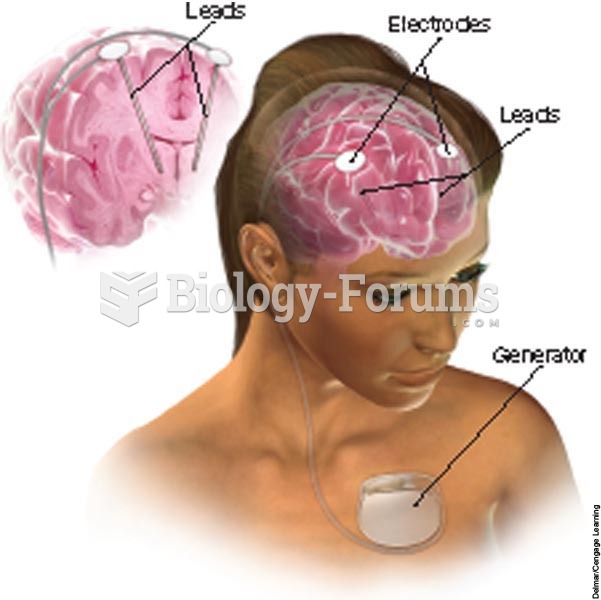|
|
|
The first documented use of surgical anesthesia in the United States was in Connecticut in 1844.
Adolescents often feel clumsy during puberty because during this time of development, their hands and feet grow faster than their arms and legs do. The body is therefore out of proportion. One out of five adolescents actually experiences growing pains during this period.
Urine turns bright yellow if larger than normal amounts of certain substances are consumed; one of these substances is asparagus.
About one in five American adults and teenagers have had a genital herpes infection—and most of them don't know it. People with genital herpes have at least twice the risk of becoming infected with HIV if exposed to it than those people who do not have genital herpes.
Vaccines prevent between 2.5 and 4 million deaths every year.







